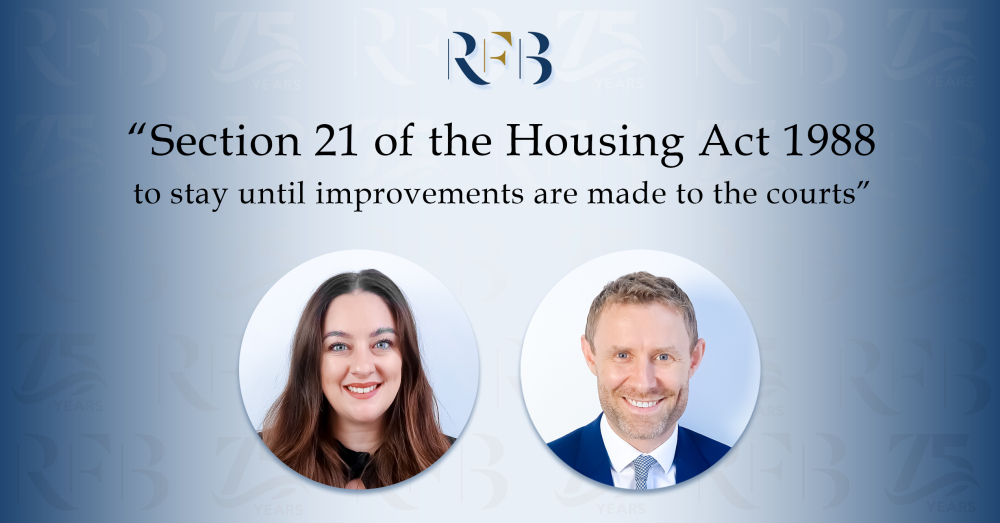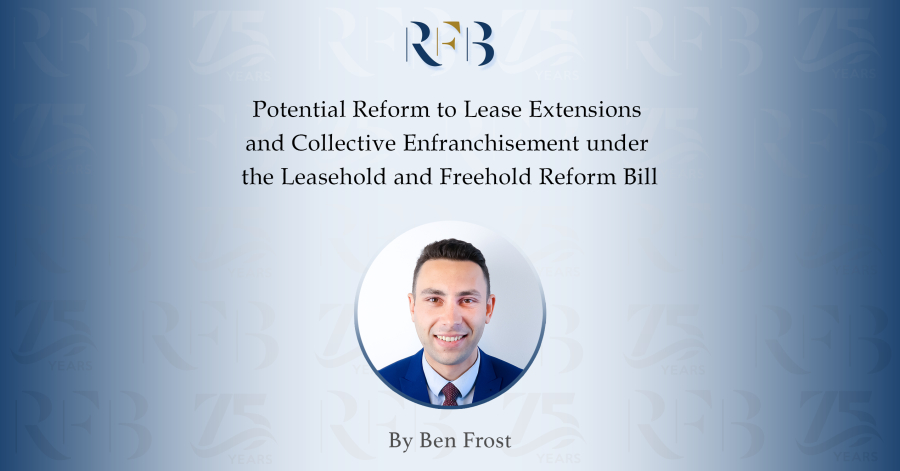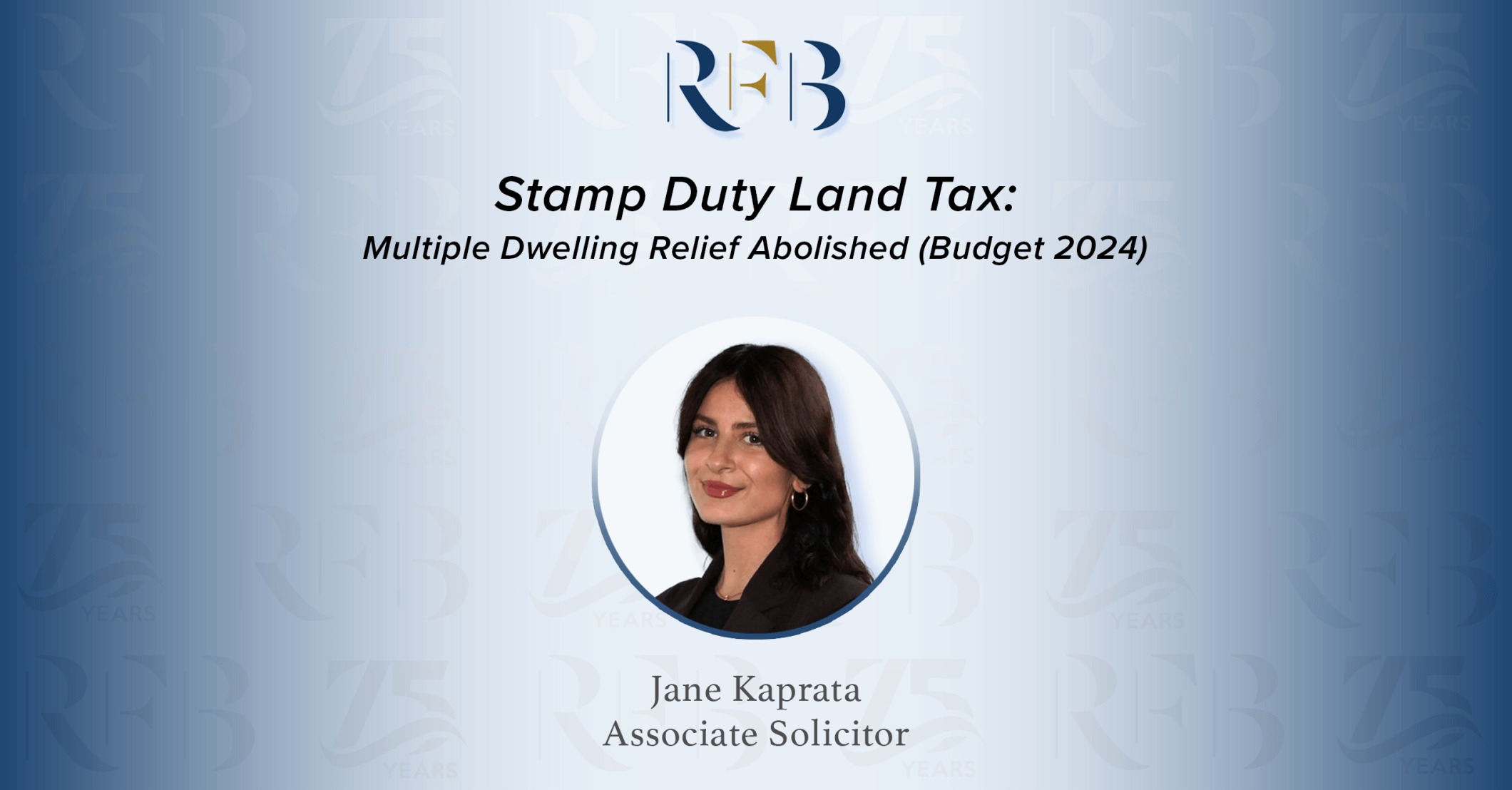Am 11. September 2024 veröffentlichte die Labour-Regierung das lang erwartete Gesetzentwurf über die Rechte der Mieter. Es wird erwartet, dass dieses Gesetz noch vor dem Jahreswechsel in Kraft treten wird. Die Labour-Regierung war maßgeblich daran beteiligt, dieses Gesetz vorzuschlagen und voranzubringen, das den Schutz der Mieter und die Bedingungen im privaten Mietsektor verbessern soll. Der Gesetzentwurf hat zahlreiche Phasen durchlaufen, wobei sowohl Mieter- als auch Vermietergruppen umfangreiche Stellungnahmen zu seinem Inhalt abgegeben haben.
Der Gesetzentwurf enthält mehrere Schlüsselelemente, mit denen sich Vermieter vertraut machen sollten jetzt um sich auf seine Auswirkungen vorzubereiten. Eine der wichtigsten Änderungen ist die Einführung eines neuen Mietvertragssystems, das die Sicherheit und Stabilität von Mietern verbessern soll.
Einführung in den Gesetzentwurf
Das Gesetz über die Rechte der Mieter (Renters' Rights Bill) zielt darauf ab, den privaten Mietsektor in England umzugestalten. Eine der wichtigsten Bestimmungen des Gesetzentwurfs ist die Abschaffung der "verschuldensunabhängigen" Zwangsräumung nach Abschnitt 21, die seit langem ein Grund zur Besorgnis für Mieter ist, die ohne Grund zwangsgeräumt werden können, während gleichzeitig versucht wird, die Bedenken von Vermietern auszugleichen, die den Besitz ihrer Immobilie aus Gründen verlangen können, die derzeit nach dem Housing Act 1988 nicht möglich sind. Der Gesetzesentwurf führt auch ein neues System von periodischen Mietverträgen ein, das die befristeten Mietverträge (Assured Shorthold Tenancies, ASTs) ersetzt.
Das Ende von Abschnitt 21
Es ist nun offiziell, dass Abschnitt 21 Zwangsräumungen ohne Verschulden werden schrittweise abgeschafft.
Der Gesetzesentwurf zielt darauf ab, dies zu erreichen, indem er die Assured Shorthold Tenancies (ASTs) abschafft und sie durch Periodic Assured Tenancies mit einer maximalen Laufzeit von einem Monat ersetzt. Diese bedeutende Veränderung bedeutet, dass Vermieter nicht mehr in der Lage sein werden, den Besitz unter Anwendung von Abschnitt 21 zu erlangen.
Zu einem zukünftigen Zeitpunkt, der in der Gesetzgebung festgelegt wird, werden alle ASTs in England - ob gesetzlich, periodisch oder befristet - in Periodic Assured Tenancies umgewandelt, es sei denn, es läuft bereits ein Section 21-Verfahren. Dieses Datum wird wahrscheinlich kurz nach der königlichen Zustimmung zum Gesetzesentwurf liegen, was mit dem Wahlversprechen der Labour-Partei übereinstimmt.
Neue Gründe für den Besitz nach Abschnitt 8
In unseren früheren Artikeln haben wir einige der neuen Gründe erörtert, die vorgeschlagen wurden, um die Abschnitt 8.
Wie bei der vorherigen Fassung dieses Gesetzes (dem Gesetz zur Reform des Mietrechts) wird es neue Gründe für den Besitz geben:
- der Vermieter, der die Immobilie verkaufen möchte; und
- Der Vermieter oder ein Familienmitglied, das in der Immobilie wohnen möchte.
Keiner dieser Gründe kann innerhalb des ersten Jahres des Mietverhältnisses geltend gemacht werden, und die Zeit des Mieters unter dem vorherigen AST wird auf diesen Zeitraum angerechnet. Außerdem müssen Vermieter eine Kündigungsfrist von vier Monaten einhalten. Beantragt der Vermieter den Besitz, um zu verkaufen, gilt eine 12-monatige Beschränkung, die verhindert, dass die Immobilie nach der Ankündigung weitervermietet oder vermarktet wird.
Wenn ein Vermieter die Immobilie vor Ablauf dieser Frist weitervermietet oder vermarktet, droht ihm eine Geldstrafe von bis zu 7.000 Pfund, die von der örtlichen Behörde verhängt wird.
Der ursprünglich vorgeschlagene Grund 8A, der sich auf Mietrückstände bezieht, wurde gestrichen. Grund 8 (Zwangsvollstreckung bei Mietrückständen) bleibt jedoch bestehen, wobei der Mindestzeitraum für Mietrückstände von zwei auf drei Monate und die Kündigungsfrist von zwei auf vier Wochen verlängert wurde.
Vorgeschriebene Dokumente
Vermieter, die Immobilien mit alten Mietverhältnissen erworben haben, bei denen die ursprünglichen Eigentümer es versäumt haben, die Anforderungen von Section 21 zu erfüllen, wie z. B. die Zustellung von Gassicherheitszertifikaten und EPCs, können ein wenig aufatmen. Nach Abschnitt 8 ist es nicht mehr erforderlich, diese Dokumente zu Beginn des Mietverhältnisses vorzulegen, um den Besitz zu erlangen.
Dennoch sollten Vermieter darauf achten, dass die gesetzlichen Vorschriften für die Bereitstellung dieser Dokumente eingehalten werden, da dies zu erheblichen Problemen führen kann.
Es ist wichtig, darauf hinzuweisen, dass im Rahmen dieses Gesetzentwurfs keine Räumungsanordnung erlassen werden kann (außer aus Gründen des unsozialen Verhaltens), wenn die Anforderungen an die Einlagensicherung nicht erfüllt sind.
Mietrückzahlungsanordnungen
Der Gesetzentwurf über die Rechte der Mieter sieht auch Änderungen bei den Mietrückzahlungsanordnungen (RROs) vor. Derzeit liegt die Verantwortung für Verstöße gegen die HMO-Anforderungen (House in Multiple Occupation) bei der Partei, die die Immobilie verwaltet/beherrscht. Für Vermieter, die sich auf Mietverträge eingelassen haben, bedeutete dies in der Vergangenheit, dass der Zwischenvermieter haftbar war.
Nach dem neuen Gesetz über die Rechte von Mietern haften übergeordnete Vermieter für Mietrückzahlungsanordnungen. Vermieter sollten daher Vorsicht walten lassen, wenn sie Mietverträge abschließen, und sicherstellen, dass eine sorgfältige Prüfung durchgeführt wird. Auch wenn die garantierte Miete und der geringere Verwaltungsaufwand verlockend sein mögen, könnten diese Vereinbarungen zu höheren Kosten aufgrund von Mietrückzahlungsanordnungen führen, die die möglichen Einsparungen bei weitem übersteigen.
Nach geltendem Recht können Mieter eine Mietrückzahlungsanordnung beantragen, wenn gegen eine HMO-Genehmigung verstoßen wurde, wenn die Immobilie über eine (obligatorische oder zusätzliche) HMO-Genehmigung hätte verfügen müssen, dies aber nicht der Fall war, und wenn die Immobilie über eine selektive Genehmigung hätte verfügen müssen, die von der örtlichen Behörde abhängt, in der die Immobilie liegt. Vermieter sollten sich stets über alle Änderungen im Gebiet ihrer Immobilien auf dem Laufenden halten, um sicherzustellen, dass sie über die erforderlichen Genehmigungen verfügen.
Außerdem wird der Zeitraum, für den RROs gelten, von 12 auf 24 Monate verlängert, und die Mieter haben zwei Jahre Zeit, um eine Verfügung zu beantragen. Das bedeutet, dass ein Mieter wegen eines Verstoßes eine RRO beantragen könnte und der Vermieter, falls er für haftbar befunden wird, 24 Monatsmieten an den Mieter zurückzahlen müsste.
Der Gesetzentwurf führt auch neue Straftatbestände ein, die zu einer Mietrückzahlungsanordnung führen können, darunter:
- Missbräuchliche Verwendung eines Besitzgrundes
- Verstoß gegen eine Vermietungsbeschränkung
- Fortgesetzter Verstoß nach Verhängung einer zivilrechtlichen Sanktion
- Verstoß gegen das Landlord Redress Scheme
- Angabe falscher Informationen in der Vermieterdatenbank
Das Gericht wird auch frühere RROs oder zivilrechtliche Sanktionen bei der Entscheidung über einen Schiedsspruch berücksichtigen können. Die Einführung des Ombudsdienstes soll dazu beitragen, Streitigkeiten schnell und kostengünstig beizulegen.
Illegale Zwangsräumungen
Wie Vermieter wissen, verstößt die unrechtmäßige Räumung eines Mieters gegen Abschnitt 1 des Gesetzes zum Schutz vor Zwangsräumungen von 1977 und kann strafrechtlich verfolgt werden. Die Renters' Rights Bill erweitert dies, indem sie den lokalen Behörden die Befugnis gibt, bei Verstößen gegen das PEA zivilrechtliche Strafen von bis zu 40.000 £ zu verhängen.
Verbot von Mietangeboten
Der Gesetzentwurf verbietet es Vermietern und Maklern, von potenziellen Mietern zu verlangen, dass sie auf die Miete bieten, oder sie zu Angeboten zu ermutigen, die über der inserierten Miete liegen. Darüber hinaus wird es Vermietern und Maklern verboten sein, Immobilien für mehr als den ausgeschriebenen Betrag zu vermieten.
Keine hohen Mietvorauszahlungen mehr
Der Gesetzentwurf wird Vermieter auch daran hindern, von Mietinteressenten hohe Vorauszahlungen zu verlangen. Der Gesetzentwurf wird die Gesetz über die Mietgebühren 2019 Vermietern und Maklern soll es untersagt werden, vor Abschluss des Mietvertrags eine Mietzahlung zu verlangen. Ein Vermieter kann nur noch bis zu einer Monatsmiete verlangen, wenn ein Mietvertrag vereinbart und vor Beginn des Mietverhältnisses unterzeichnet wurde.
Mit dem Gesetzentwurf wird auch die Wohnungsbaugesetz 1988 dass bestehende Mietverträge, die Bestimmungen enthalten, die hohe Vorauszahlungen verlangen, nicht durchsetzbar sind.
Mieterhöhungen
Im Rahmen der neuen Periodic Assured Tenancies können die Mieten nur einmal pro Jahr nach dem Section 13-Verfahren nach dem Housing Act 1988. Derzeit können Mieter eine Mieterhöhung nach Abschnitt 13 vor dem erstinstanzlichen Gericht anfechten, das feststellt, ob die vorgeschlagene Miete die Marktpreise übersteigt.
Der Gesetzentwurf engt den Zuständigkeitsbereich des Gerichts ein, indem er ihm erlaubt, eine Miete festzulegen, die dem niedrigeren Wert von (a) der Marktmiete oder (b) der vom Vermieter vorgeschlagenen Miete entspricht. Darüber hinaus wird das Gericht die Befugnis haben, die Gültigkeit einer Mitteilung nach Abschnitt 13 zu bestimmen, was es derzeit nicht tun kann.
Abschnitt 10A Landlord and Tenant Act 1985 - Awaab's Gesetz
Das Awaab-Gesetz, das bereits für soziale Vermieter gilt, wird auch auf den privaten Sektor angewendet. Zwar werden die Reparaturverpflichtungen der Vermieter nicht über die bereits unter Abschnitte 9A und 11 des Landlord and Tenant Act 1985Sie schreibt einen Zeitrahmen für die Beantwortung von Mängelbeschwerden vor. Private Vermieter sollten die Verordnungen nach ihrer Veröffentlichung genau überwachen und sicherstellen, dass alle internen Systeme entsprechend aktualisiert werden.
Haustiere
Wie in unserem früheren Artikel über die alte Fassung des Gesetzentwurfs wird es Mietern nun erlaubt sein, Haustiere in Mietobjekten zu halten. Der Gesetzentwurf sieht jedoch vor, dass die Mieter eine Versicherung für Haustiere abschließen müssen, was einen Verstoß gegen das Mietverhältnis darstellt. Die Vermieter müssen diese Anträge auf Haustiere prüfen und dürfen sie nicht unangemessen ablehnen. Damit wird sichergestellt, dass die Rechte der Mieter gefördert werden, während gleichzeitig die Bedingungen festgelegt werden, unter denen Vermieter sie ablehnen können.
Diskriminierung
Mit dem Gesetzentwurf wird ein generelles Verbot für Vermieter eingeführt, Mietern, die Sozialleistungen beziehen oder Kinder haben, die Miete zu verweigern, es sei denn, es gibt einen legitimen Grund. Klauseln in Hypotheken oder Versicherungspolicen, die Sozialhilfeempfänger oder Familien mit Kindern ausschließen, sind nicht durchsetzbar und nichtig.
Vermieter können weiterhin das Einkommen eines potenziellen Mieters berücksichtigen, um zu beurteilen, ob er sich die Miete realistisch leisten kann.
Die Vermieterdatenbank
Der Gesetzentwurf enthält auch eine Bestimmung für eine nationale Vermieterdatenbank. Mieter können diese Datenbank durchsuchen, um zu überprüfen, ob die Vermieter ihren gesetzlichen Verpflichtungen nachgekommen sind. Die Datenbank soll den Vermietern helfen, ihre gesetzlichen Verpflichtungen zu verstehen und deren Einhaltung zu gewährleisten. Der Minister kann durch Verordnungen festlegen, welche Informationen in der Datenbank für die Öffentlichkeit zugänglich sein sollen (auch Räte erhalten Zugang).
Details wie Gassicherheitszertifikate, EPCs und EICRs können ebenso aufgenommen werden wie alle Verurteilungen oder zivilrechtlichen Strafen. Die Nichteinhaltung der Datenbankanforderungen kann zu zivilrechtlichen Strafen von bis zu 7.000 £ führen, wobei bei schwereren Verstößen auch eine strafrechtliche Verfolgung möglich ist.
Darüber hinaus führt die Nichtregistrierung in der nationalen Vermieterdatenbank vor der Beantragung des Besitzes nach dem neuen System dazu, dass jede Mitteilung, mit der der Besitz beantragt wird, als ungültig angesehen wird. Ein Versäumnis bei der Registrierung kann jedoch nach dem derzeitigen Entwurf des Gesetzentwurfs behoben werden, solange dies vor der Zustellung einer Besitzverschaffungsmitteilung geschieht.
Durchsetzung und Regulierung
Die Renters' Rights Bill führt eine Reihe neuer Durchsetzungsmaßnahmen ein, um Mieter vor unseriösen Vermietern zu schützen und sicherzustellen, dass Vermieter ihren gesetzlichen Verpflichtungen nachkommen. Mit dem Gesetzentwurf wird eine neue Datenbank für den privaten Mietsektor eingerichtet, die eine einzige Informationsquelle über Vermieter und ihre Immobilien bieten wird. Dies wird den lokalen Behörden helfen, unseriöse Vermieter, die ihren Verpflichtungen nicht nachkommen, zu identifizieren und gegen sie vorzugehen. Mit dem Gesetzentwurf wird auch ein neues Ombudsmannsystem eingeführt, das einen fairen und unparteiischen Dienst zur Beilegung von Streitigkeiten zwischen Vermietern und Mietern bietet. Darüber hinaus gibt der Gesetzentwurf den lokalen Behörden neue Befugnisse, um gegen Vermieter vorzugehen, die ihre Verpflichtungen ständig oder wiederholt verletzen, einschließlich der Befugnis, Bußgelder und andere Strafen zu verhängen. Die lokalen Behörden erhalten auch erweiterte Ermittlungsbefugnisse bei der Untersuchung angeblicher Verstöße.
Anwälte für Wohnimmobilienstreitigkeiten - Kontakt
Angesichts der bevorstehenden bedeutenden Änderungen müssen Vermieter informiert bleiben und sicherstellen, dass sie die neuen Anforderungen vollständig erfüllen, sobald das Gesetz in Kraft tritt.
Für Beratung über Streitigkeiten über Wohneigentumwenden Sie sich bitte an Senior Associate Marissa Lawrence oder Senior Litigation Partner David Burns.







